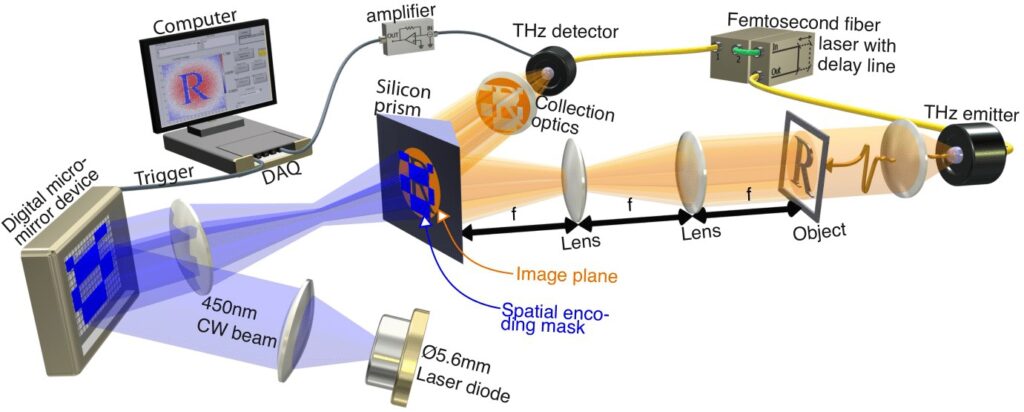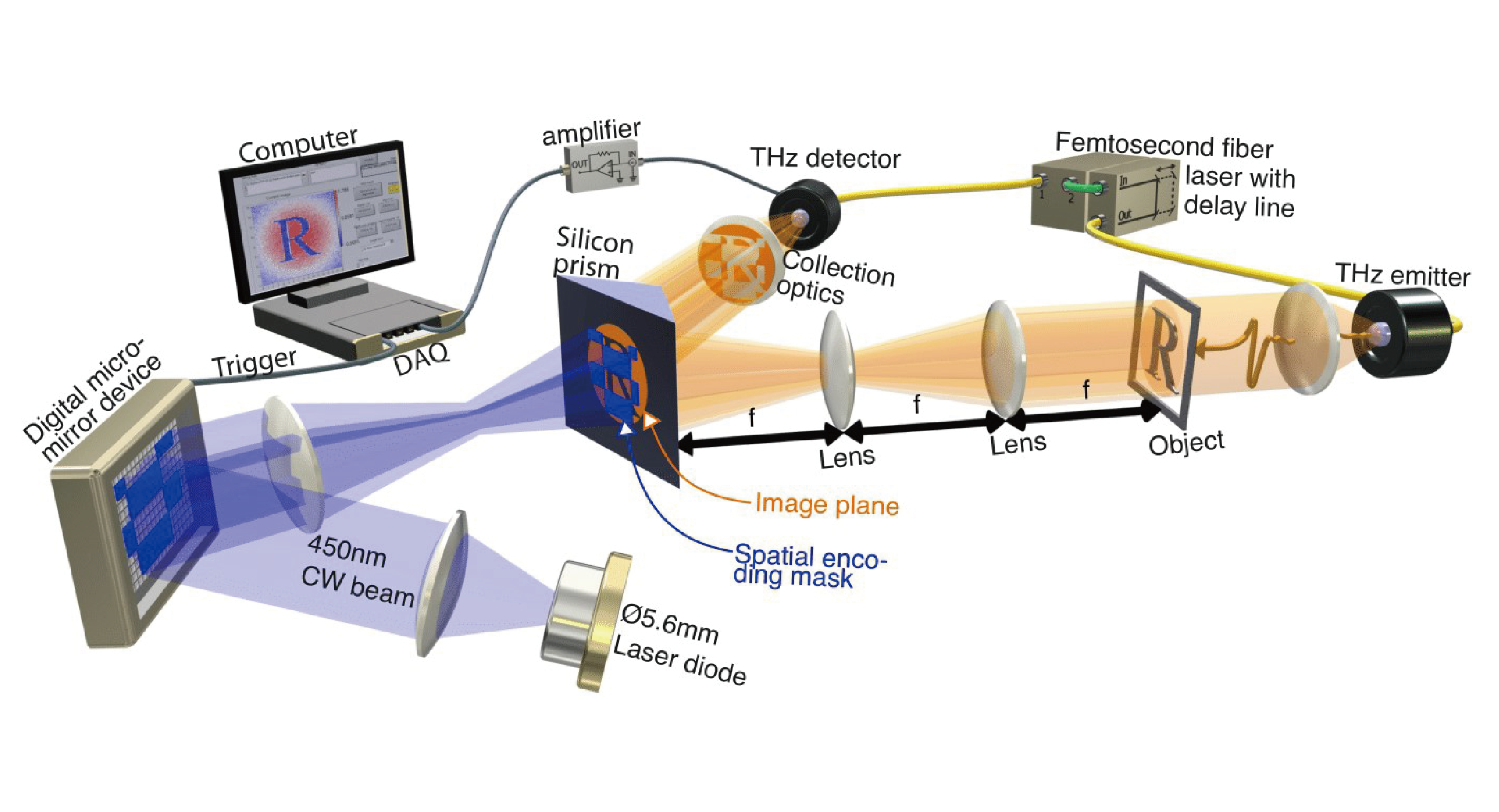Terahertz (THz) radiation, or terahertz radiation (T-rays), sit in-between infrared and Wi-Fi on the electromagnetic spectrum. T-rays have different properties from other electromagnetic waves, most notably they can see through many common materials. Another quality is that the low-energy photons of T-rays are non-ionizing, making them very safe in biological settings including security and medical screening. They are also highly sensitive to water and can observe minute changes to the hydration state of biological matter. This means that diseases perturbing the water content of biological matter, such as skin cancer. However, THz technology is still not widely used in commercial settings for the last 25 years as the cost, robustness and/or ease of use is still lagging behind for commercial adoption in industrial settings.
This project has reached a crucial milestone towards developing single-pixel T-ray imaging technology. Their single-pixel T-ray camera reached 100 times faster acquisition than the previous state-of-the-art, acquiring a 32×32 video at 6 frames-per-second, without adding any significant costs to the entire system or sacrificing the sub-picosecond temporal resolution needed for the most sought-after applications, potentially opening the opportunity for them to be used in non-invasive security and medical screening. We do this by firstly determining the optimal modulation geometry, secondly by modelizing the temporal response of our imaging system for improvement in signal-to-noise, and thirdly by reducing the total number of measurements with compressed sensing techniques.
Future work will focus on improving the signal-to-noise and optimizing the software needed for accurate medical diagnosis, with the ultimate goal being to use single-pixel THz imaging for in vivo cancer diagnosis.

